July 2025
Ocean plastic pollution is a huge problem that poses a direct threat to marine biodiversity.
Some of the plastic polluting the ocean is lost or abandoned fishing gear (sometimes known as ghost gear). The Environmental Investigation Agency has estimated that ghost gear makes up around 10% of global marine plastic, but can be as high as 20% in some areas.
Avoiding abandoned fishing gear is an important part of sustainable fishing and fisheries that have met the MSC's rigorous standard for sustainability must demonstrate that they avoid the creation of ghost gear.
Here we showcase four MSC-engaged fisheries around the globe working to avoid plastic pollution.
1. Cape Town collective effort marks first for South Africa
South Africa’s hake trawl fishery is working with OCEAN Action Network, Ocean Plastic Technologies and the V&A Waterfront to recycle end-of-life fishing nets, in a first for South Africa.Project partners are coming together to develop the country’s first on-site recycling facility for used fishing gear, thanks to a funding boost from the MSC’s Ocean Stewardship Fund.
Nets are sorted and processed into high-value, densified materials suitable for reuse in plastic manufacturing, not only minimising environmental harm from discarded gear but also promoting circular economy practices and sustainable waste management.
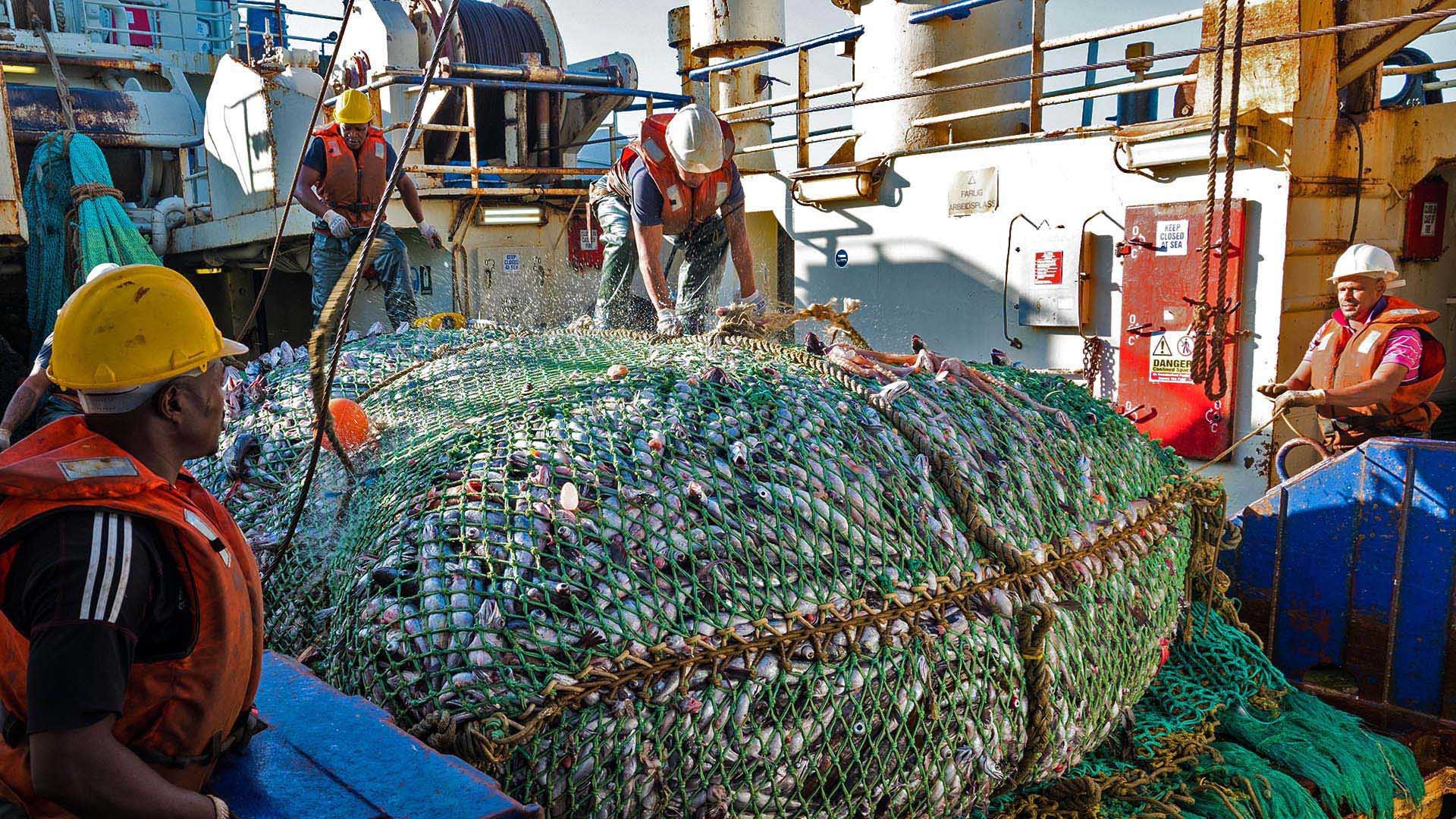
South African hake fishers © Claire Ward
2. Fishing gear finds new life in Cornwall, UK
The UK’s Cornish hake gill net fishery has adopted an innovative approach for discarding used fishing nets, through a partnership with Fishy Filaments.
When degradation or biofilm build-up renders the fishery’s gillnets unusable, the gear is transferred to Fishy Filament’s facility in Newlyn Harbour where they are recycled into engineering grade filament for 3D printing.
The University of Exeter conducted a study on the carbon cost of recycling the MSC Cornish hake nets into a form that is suitable for injection moulding companies. The findings concluded that the process costs the planet between 97 and 98% less CO2 than if manufacturers employed first use nylon.
Read our biodiversity report
3. A natural approach helps avoid pollution in Ecuador
The MSC certified Ecuadorian tuna fishery TUNACONS has introduced non-entangling Fish Aggregation Devices (eco-FADs) that are 100% biodegradable materials, made from balsa wood, manila hemp and bamboo.
The fishery has also collected and recycled over 100 tonnes of fishing nets which are now being turned into skateboards, clothes and toys by company Bureo.
Their fisheries project "pescando plásticos" collects plastic from mangroves, over 20 tonnes to date, from the Gulf of Guayaquil, while its initiative "Caring for Galapagos" collects abandoned fishing gear from the seabed and coast around the Galapagos Islands.
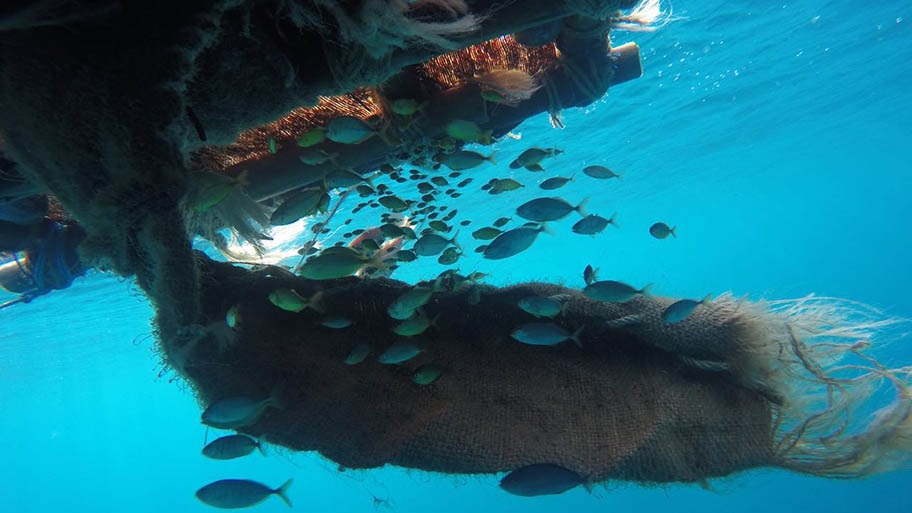
Eco-FAD in action © TUNACONS
4. Lobster pots are hot property for fishers in Normandy
For the Normandy and Jersey lobster fisheries, their pots are precious items.
To maintain their sustainability credentials, fishers must report all lost pots, and each individual lobster pot is tagged with a boat registration and year. Only a limited number of replacement pot tags are available, so fishers are motivated to save their pots from being lost at any cost.
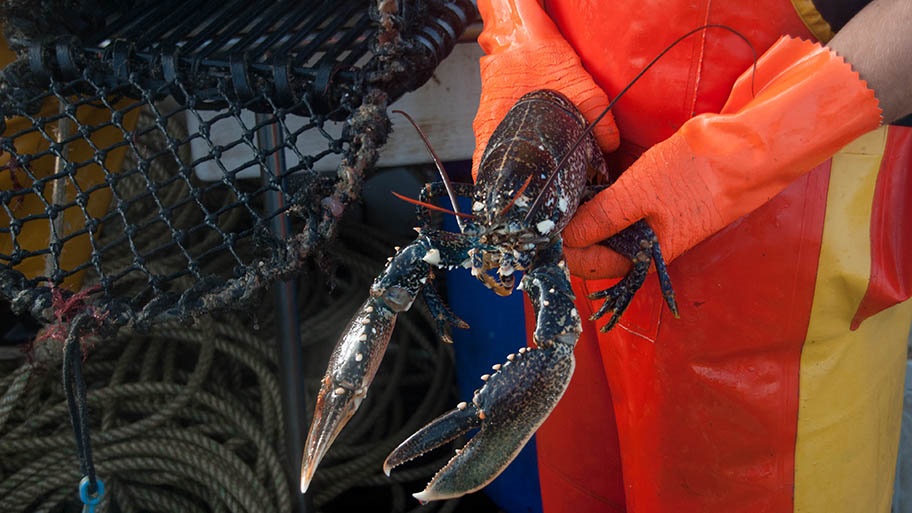
Fresh lobster catch and pot, Normandy © DudePresse

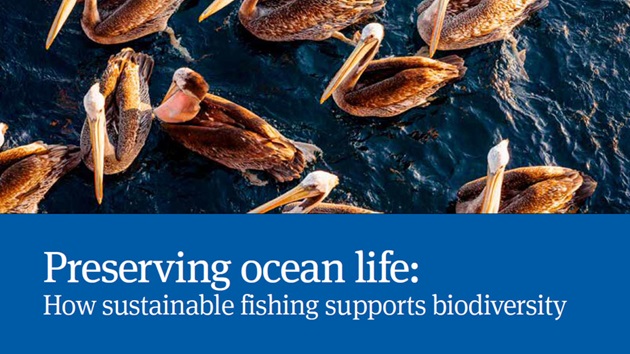

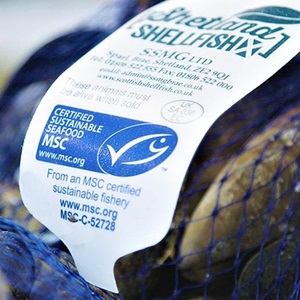
/biodiversity-and-fishing-spotlight.tmb-thumb300.jpg?Status=Master&Culture=en&sfvrsn=7d1e89b7_1)